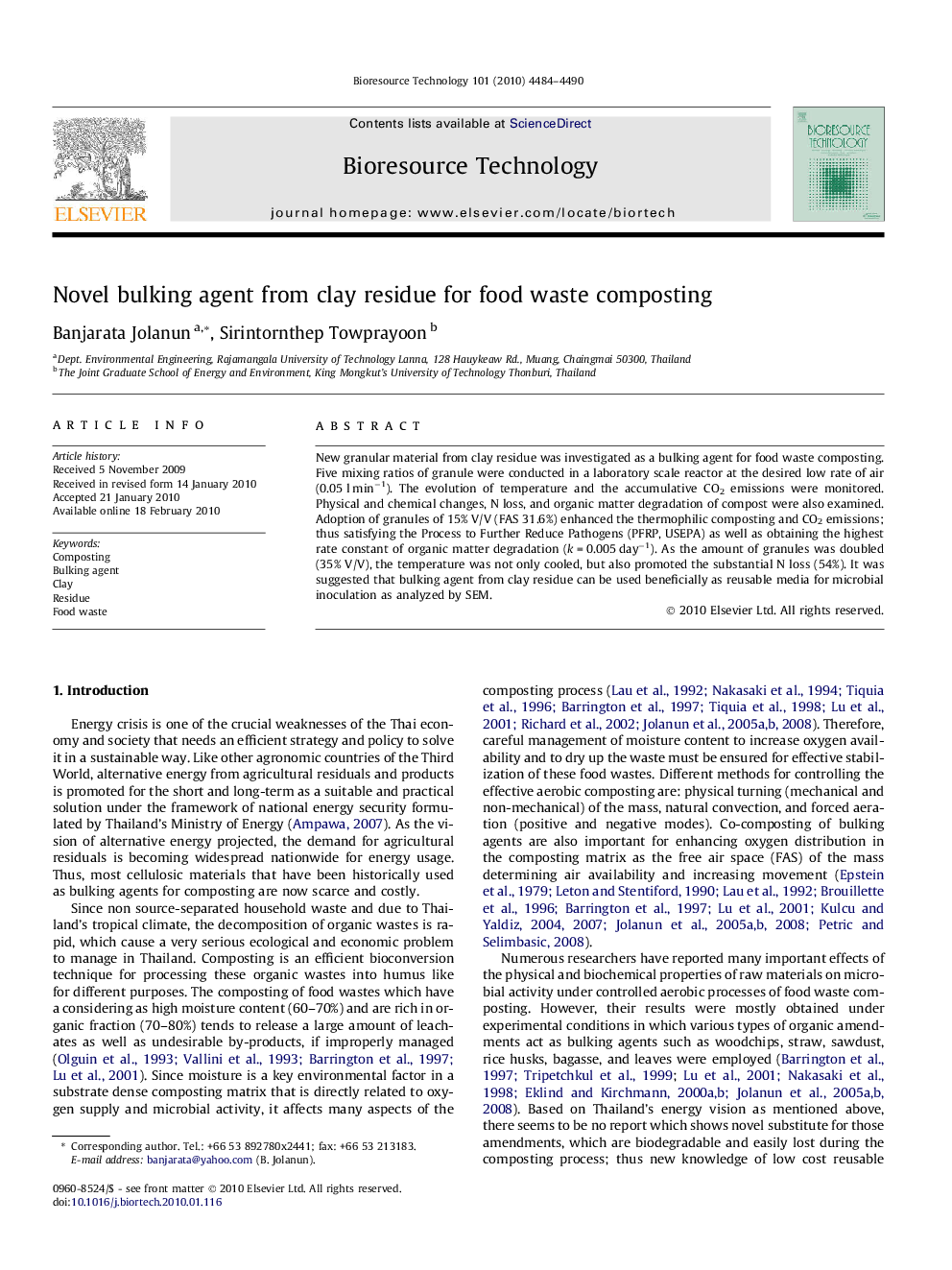| Article ID | Journal | Published Year | Pages | File Type |
|---|---|---|---|---|
| 10395629 | Bioresource Technology | 2010 | 7 Pages |
Abstract
New granular material from clay residue was investigated as a bulking agent for food waste composting. Five mixing ratios of granule were conducted in a laboratory scale reactor at the desired low rate of air (0.05 l minâ1). The evolution of temperature and the accumulative CO2 emissions were monitored. Physical and chemical changes, N loss, and organic matter degradation of compost were also examined. Adoption of granules of 15% V/V (FAS 31.6%) enhanced the thermophilic composting and CO2 emissions; thus satisfying the Process to Further Reduce Pathogens (PFRP, USEPA) as well as obtaining the highest rate constant of organic matter degradation (k = 0.005 dayâ1). As the amount of granules was doubled (35% V/V), the temperature was not only cooled, but also promoted the substantial N loss (54%). It was suggested that bulking agent from clay residue can be used beneficially as reusable media for microbial inoculation as analyzed by SEM.
Related Topics
Physical Sciences and Engineering
Chemical Engineering
Process Chemistry and Technology
Authors
Banjarata Jolanun, Sirintornthep Towprayoon,
